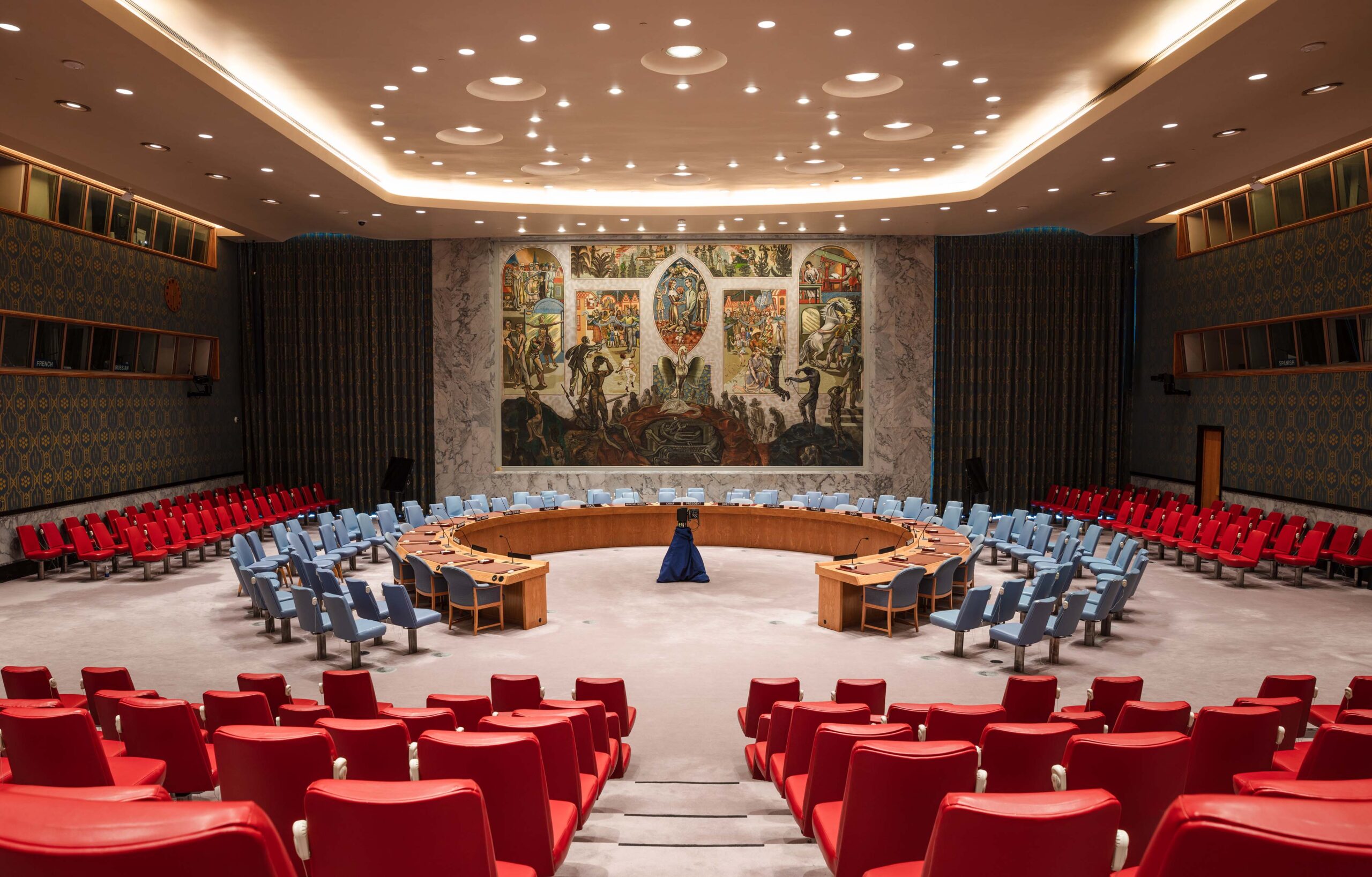The United States once again isolated itself diplomatically on Thursday, casting the sole dissenting vote to veto a United Nations Security Council resolution demanding an immediate and permanent ceasefire in Gaza. The resolution, which garnered support from all 14 other council members, also called for Israel to lift all restrictions on humanitarian aid entering the Palestinian territory.
This marked the sixth time Washington has vetoed a Security Council resolution calling for a ceasefire since the war began following Hamas’s October 7 attack on Israel. The pattern has consistently placed the United States in diplomatic isolation, even among its closest allies.
The resolution, drafted by the 10 elected members of the 15-member council, demanded not only an immediate ceasefire but also the “immediate, dignified and unconditional release of all hostages held by Hamas and other groups.” Additionally, it called for Israel to “immediately and unconditionally lift all restrictions on the entry of humanitarian aid into Gaza.”
Morgan Ortagus, counsellor at the US mission to the United Nations, dismissed the resolution as performative, stating that council members “opted for a performative action—designed to draw a veto—that extends Hamas terrorists and those who fund them and support them, and gives them a lifeline.”
Ortagus argued that the resolution “fails to condemn Hamas or recognize Israel’s right to defend itself, and it wrongly legitimises the false narratives benefiting Hamas, which have sadly found currency in this council.”
Israeli Ambassador Danny Danon echoed these criticisms, telling the council that “for some members of the council, this is a performance. For Israel, this is a daily reality.” Danon condemned the resolution for being “presented without condemnation of Hamas, without condemnation of the Oct. 7 massacre and without a demand for Hamas to disarm.”
“This is not diplomacy. This is surrender,” Danon declared, emphasizing that Israel would continue military operations until all hostages are returned.
Both US and Israeli officials have consistently raised concerns about bias within UN institutions against Israel. The American position reflects long-standing complaints that UN resolutions fail to adequately condemn Hamas while placing disproportionate blame on Israel for the humanitarian crisis.
The resolution cited a disputed UN-backed report claiming that famine conditions exist in Gaza City and surrounding areas. Critics of the report have questioned its methodology and timing, with some suggesting it serves to legitimize narratives favorable to Hamas.
The resolution described the humanitarian situation in Gaza as “catastrophic,” referencing reports from food crisis authorities warning that famine conditions could spread across the territory without immediate intervention. However, US officials have pointed to significant challenges in aid distribution, noting that UN humanitarian supplies are “looted at alarming rates.”
The aid delivery issue highlights the complex security environment that Israel cites as justification for its restrictions, arguing that unrestricted access could benefit Hamas militants who have historically hijacked humanitarian resources for military purposes.
The timing of the vote, just days before the annual UN General Assembly gathering, adds significance to the diplomatic tensions. Major US allies, including the UK and France, are expected to recognize an independent Palestinian state during the assembly—a move vehemently opposed by both Israel and the United States.
The Security Council vote coincided with Israel’s launch of a new ground offensive in Gaza City in its final offernsive to eliminate Hamas. Israeli forces have maintained their position that military pressure is necessary to secure the release of hostages still held by Hamas and other groups.
The persistent pattern of US vetoes reflects the administration’s unwavering support for Israel’s right to self-defense, even as it faces mounting international pressure to facilitate a ceasefire and increased humanitarian access to Gaza’s 2.1 million Palestinian residents.





